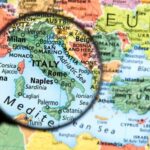Italy, renowned for its vibrant culture, historical landmarks, and delectable cuisine, has been a popular destination for travelers worldwide. However, in light of the ongoing global pandemic, many potential visitors are questioning: “Does Italy have travel restrictions?” Understanding the current travel situation in Italy is essential for anyone planning a trip to this beloved country.
As countries continue to navigate the challenges posed by COVID-19, Italy has implemented various travel restrictions to ensure the safety of both its residents and tourists. It is crucial for travelers to stay informed about these regulations before embarking on their journey. By familiarizing themselves with Italy’s entry requirements, COVID-19 regulations, travel restrictions within the country, and quarantine guidelines, visitors can make informed decisions and ensure a smooth travel experience.
From entry documentation to quarantine guidelines and COVID-19 testing requirements, there are several factors that travelers need to consider when planning a trip to Italy. As the situation continues to evolve, staying up-to-date with travel advisory updates is key. By arming themselves with relevant information and following official government guidelines, travelers can navigate Italy’s travel restrictions effectively and enjoy all that this beautiful country has to offer without any unexpected hiccups along the way.
Italy’s Entry Requirements
For travelers planning a trip to Italy, understanding the entry requirements is crucial to ensure a smooth and hassle-free arrival. As of now, Italy has implemented certain entry restrictions in response to the ongoing COVID-19 pandemic. It is essential to be informed about these requirements before embarking on your journey.
Here are some key entry requirements for travelers entering Italy:
- Completion of a self-declaration form stating the purpose of your visit
- Proof of a negative COVID-19 test taken within a specific timeframe before departure
- Mandatory quarantine for travelers arriving from certain countries
Travelers must also be prepared to provide additional documentation upon request by Italian authorities, such as proof of accommodation or travel itinerary. Failure to meet these entry requirements may result in denial of entry into the country.
It is advisable for travelers to regularly check official government websites and consult with their airline or embassy for the most up-to-date information on entry requirements and travel restrictions in Italy. By staying informed and complying with these regulations, you can help ensure a safe and enjoyable trip to this beautiful country.
COVID-19 Regulations in Italy
Italy has been implementing various COVID-19 regulations to curb the spread of the virus and protect public health. As of now, the country still does have travel restrictions in place to ensure the safety of both locals and visitors. Understanding these regulations is crucial for anyone planning a trip to Italy, as they can affect various aspects of travel, from entry requirements to daily activities within the country.
Overview of the Current COVID-19 Situation in Italy
Italy has made significant progress in managing the COVID-19 pandemic, with vaccination efforts underway and infection rates declining. However, certain restrictions are still in place to prevent a resurgence of cases. The Italian government continues to monitor the situation closely and adjust measures as needed based on epidemiological data.
Restrictions on Gatherings, Mask Mandates, Social Distancing Measures
Currently, Italy has restrictions on gatherings both indoors and outdoors to limit the risk of transmission. Mask mandates remain in effect in most public spaces, including shops, restaurants, and public transportation. Social distancing measures are also encouraged to reduce close contact between individuals. It is essential for travelers to comply with these regulations during their stay in Italy to contribute to the collective effort against COVID-19.
As travelers plan their trips to Italy, staying informed about these COVID-19 regulations and adhering to them will be key in having a safe and enjoyable experience in the country. By following all guidelines set forth by Italian authorities, visitors can contribute to the well-being of local communities and help ensure a smooth travel experience amidst ongoing uncertainties related to the pandemic.
Travel Restrictions Within Italy
Italy, known for its rich history, stunning landscapes, and delicious cuisine, currently has several travel restrictions in place to combat the spread of COVID-19. As travelers consider visiting this beautiful country, it is vital to understand the various regulations that may impact their trip. This section will delve into the specific travel restrictions within Italy and provide insights into navigating them effectively.
Inter-Regional Travel Restrictions
Within Italy, there are restrictions on inter-regional travel aimed at controlling the spread of the virus. Travelers should be aware that movement between different regions may be limited or subject to specific requirements. It is essential to stay updated on the latest regulations regarding inter-regional travel in order to avoid any disruptions or difficulties during your trip.
Regulations for Travel to Certain Regions
Certain regions within Italy may have additional regulations or entry requirements for travelers. These measures could include mandatory quarantine upon arrival, specific documentation needed for entry, or limitations on activities within that region. Before planning your itinerary, make sure to research any unique restrictions or guidelines that apply to the regions you intend to visit. Adhering to these regulations will not only ensure compliance with local laws but also contribute to the overall safety of yourself and those around you.
Navigating Travel Restrictions
To navigate travel restrictions within Italy successfully, travelers are advised to check official government websites regularly for updates and clarifications. Additionally, reaching out to local authorities or your accommodation provider for detailed information can help clarify any doubts or concerns about travel regulations. By staying informed and adhering to the guidelines in place, visitors can enjoy a safe and rewarding experience while exploring all that Italy has to offer.
Quarantine Guidelines
Italy currently has specific quarantine guidelines in place for travelers entering the country. It is crucial to understand and adhere to these rules to ensure a smooth travel experience. Below is a detailed overview of the quarantine guidelines for individuals traveling to Italy amidst the ongoing COVID-19 pandemic:
- Quarantine Requirements: Travelers entering Italy are required to quarantine upon arrival, regardless of their vaccination status or nationality. The duration of the quarantine period may vary depending on certain factors.
- Duration and Rules: The typical duration of quarantine in Italy is 5 days. However, this period may be shortened if the traveler receives a negative COVID-19 test result after arrival in Italy. It is essential to follow all guidelines provided by local health authorities during the quarantine period.
- Quarantine Facilities: Travelers should make arrangements for suitable accommodation where they can safely undergo quarantine. It is important to ensure that the accommodation meets all necessary requirements for quarantine purposes.
It is important for travelers planning a trip to Italy to familiarize themselves with these quarantine guidelines and make necessary arrangements before their journey. Failure to comply with these regulations could result in penalties or travel disruptions.
Additionally, staying informed about any updates or changes to the quarantine guidelines in Italy is essential. Travelers should regularly check official government websites and resources for the most up-to-date information regarding travel restrictions and requirements in Italy amidst the evolving situation of the pandemic.
Overall, understanding and following the quarantine guidelines in Italy demonstrates responsible travel behavior and helps protect public health during these challenging times. By staying informed and compliant with regulations, travelers can contribute to a safe and enjoyable travel experience in Italy.
COVID-19 Testing Requirements
Italy has put in place strict travel restrictions and requirements to ensure the safety of both residents and visitors during the ongoing COVID-19 pandemic. One of the key aspects that travelers need to be aware of is the COVID-19 testing requirements for entering Italy. As of now, travelers arriving in Italy from most countries are required to present a negative COVID-19 test result taken within 48 hours before entry. This applies to both vaccinated and unvaccinated individuals.
It is important to note that Italy accepts both PCR and antigen tests for entry, as long as they meet the specific criteria set by the Italian government. It is recommended for travelers to check with their airline or the Italian embassy in their country for the most up-to-date information on which type of test is accepted before traveling. Failure to provide a valid negative test result may result in denial of boarding or entry into Italy.
In addition to testing requirements for entry, travelers should also be prepared for possible random testing upon arrival in Italy, especially if they are coming from a country deemed high risk for COVID-19 transmission. It is crucial for travelers to familiarize themselves with these testing requirements and ensure compliance to avoid any disruptions to their travel plans.
| COVID-19 Testing Requirements | Details |
|---|---|
| Accepted Tests | PCR and antigen tests meeting specific criteria |
| Timing | Test must be taken within 48 hours before entry |
| Random Testing | Possible upon arrival, especially from high-risk countries |
Travel Advisory Updates
Italy is renowned for its rich history, culture, and stunning landscapes, making it a popular destination for travelers from around the world. However, with the ongoing COVID-19 pandemic, it is essential for visitors to stay informed about any travel restrictions in place. So, does Italy have travel restrictions? As of now, Italy has implemented various measures to control the spread of the virus and ensure the safety of both residents and tourists.
One key aspect that travelers must be aware of is Italy’s entry requirements. Currently, individuals entering Italy must adhere to specific guidelines such as providing documentation of a negative COVID-19 test result taken within a certain timeframe before arrival. Additionally, travelers may need to quarantine upon entry based on their country of origin or recent travel history. It is crucial to stay updated on these entry requirements to avoid any issues during your trip.
Moreover, within Italy, there are also restrictions on inter-regional travel in place. Different regions may have varying regulations regarding gatherings, mask mandates, and social distancing measures. It is important for travelers to familiarize themselves with these regional restrictions to ensure compliance and a smooth travel experience. By staying informed about both national and regional guidelines, visitors can navigate their trip effectively and enjoy all that Italy has to offer while prioritizing health and safety.
| Key Points | Information |
|---|---|
| Entry Requirements | Documentation of negative COVID-19 test results needed |
| Inter-regional Travel Restrictions | Varying regulations across different regions in Italy |
| Safety Measures | Gatherings limited and mask mandates in place |
Conclusion
In conclusion, it is important for travelers to stay informed about the current travel restrictions in Italy, especially amidst the ongoing COVID-19 pandemic. As of now, Italy does have travel restrictions in place to help curb the spread of the virus and protect public health. Understanding Italy’s entry requirements, COVID-19 regulations, travel restrictions within the country, quarantine guidelines, and testing requirements is essential for anyone considering a trip to Italy.
Travelers entering Italy should be prepared with the necessary documentation, be aware of restrictions on gatherings, adhere to mask mandates and social distancing measures, and comply with any quarantine guidelines upon arrival. It is also crucial to keep up-to-date with any travel advisory updates from official government sources to ensure a smooth and safe trip.
As the situation regarding travel restrictions in Italy continues to evolve based on the status of COVID-19 cases and developments in containment measures, travelers are advised to plan their trips carefully, stay flexible, and prioritize health and safety precautions. By being well-informed and prepared, travelers can navigate through any challenges posed by travel restrictions in Italy and enjoy their visit responsibly.
Frequently Asked Questions
Are There Any Restrictions to Travel to Italy?
Currently, there are restrictions in place for travel to Italy due to the COVID-19 pandemic. Travelers may need to provide proof of vaccination, negative test results, or quarantine upon arrival depending on their country of origin and the current situation.
What Is Required for a US Citizen to Visit Italy?
For a US citizen to visit Italy, a valid passport is required that does not expire for at least three months beyond the intended departure date from Italy. Additionally, US citizens are allowed to stay in Italy and other Schengen countries for up to 90 days within a 180-day period without a visa.
Do I Need Vaccines for Italy?
Generally, there are no specific vaccines required for travelers visiting Italy. However, it is recommended by the CDC to be up-to-date on routine vaccines before traveling anywhere. Depending on your individual health and specific circumstances, certain vaccines may be advisable before your trip.

I’m a passionate traveler, writer, and Italophile. My fascination with Italy’s history, art, and culture has led me on countless adventures across the Italian landscape. Through “I Live Italy,” I share my love for this extraordinary country and aims to inspire others to explore its boundless beauty.




